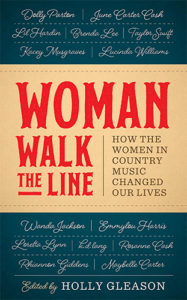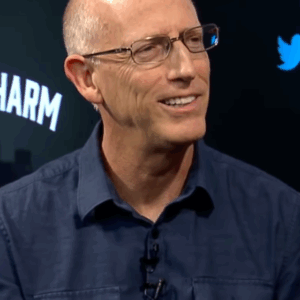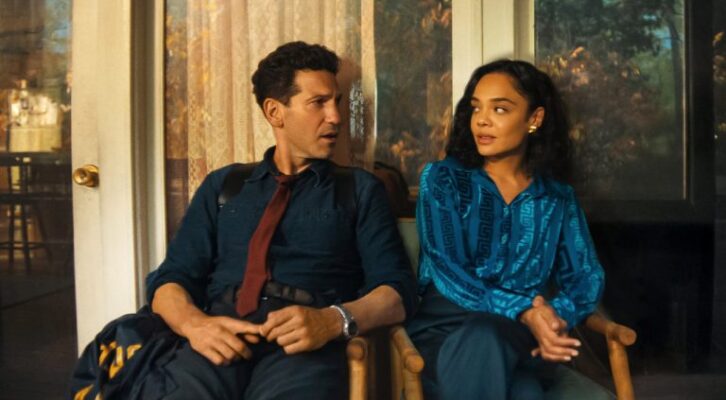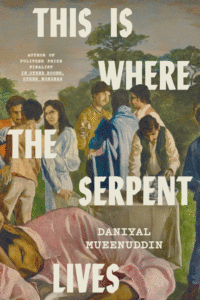
How Shania Twain Made Me a Writer
On Country Music, Storytelling, and an Influential Middle School Essay
In eighth grade, I had a social studies teacher who was tall and imposing, with a bold mustache. He wasn’t easily won over. As a kid who was always eager to please my parents and teachers, I really, really wanted to impress him.
So when he offered my class the opportunity to participate in an essay contest, I jumped at the chance. What better way to show off just how dedicated I was than to do an extra assignment—that wouldn’t even count toward my grade? I don’t recall the exact topic, though the gist of the assignment was to write about a famous person you admired. Easy, I thought.
I turned in the essay a few days later and don’t remember much about what happened next. I certainly didn’t win the contest, so I didn’t give it much more thought. But I’ll never forget the expression of surprise, mild contempt, and amusement when my teacher saw the name of the person I chose to write about: Shania Twain.
Trust me, I have a lot of questions for my teenage self. Why, out of all the historical figures and pop culture icons I could have chosen, did I choose Shania Twain? Granted, it was the Shania heyday: it was the fall of 1999, and she was in the midst of becoming one of the most influential female country artists of all time, two years after the debut of her massive, ten-times-platinum album Come On Over, which would go on to be the most successful country album ever. Still, I didn’t know any of that.
Why did I want to write about a country singer?
That question has loomed large in my life for the last 17 years. Throughout high school, college on the East Coast, and my time as an entertainment reporter in Washington, DC, I constantly see my teacher’s confused expression in my mind’s eye when I tell people I love country music. “Why?” they ask, incredulous. Then the follow-up: “Where are you from?” When I answer “Ohio,” they assume I must have grown up on a farm. When I tell them I was raised in the suburbs of Cleveland, they’re confused all over again.
It’s a hard concept to explain. Country music is an ingrained part of my identity. My fascination with the genre leads me to look at the impact it has on people and its significance in our culture. The fact that it’s the most popular type of music in America says so much about us as a nation. Today I write about these questions for my job as a reporter for the Washington Post. But sometimes, even all these years later, I wonder where this passion of mine comes from.
I recently dug up my middle school essay to get some answers.
Maybe, just maybe, it all started with Shania.
The document, miraculously still floating around on a CD-ROM in my childhood home, is titled “More Than Just a Voice.” It begins with the following passage, verbatim:
Nowadays, everyone is always telling teens to go for their dreams. “Nothing can stop you! You are in charge of your own life! Your life is an open book with pages for you to write on!” And after awhile, they become some words strung together, not actual phrases with meaning. Year after year, teens head’s are crammed with positive encouragement, that truthfully have no real effect. As a teenager myself in the almost new millennium, I myself admit I have only half listened when adults tell me those things.
Then all of a sudden, someone brought those words to life for me. Just one person. It wasn’t my mom or dad, or even one of my teachers. They have done a fine job telling me that up until now, but one person made me sit up and believe it. And that person was a singer. I have no contact with her personally. But that doesn’t matter. This one person brought across the message “never give up.” Her name is Shania Twain.
That’s a lot of passion. How did Twain inspire me? Read on:
Her road to becoming a singer wasn’t easy. It was shocking actually, to learn how much she had to suffer to reach her dream.
We complain about how early we have to get up for school. Really? Well, how about getting up at one in the morning being dragged to various clubs to sing? Not really against your will . . . but knowing that you were nearly supporting your family of seven with the money you get paid? That is Shania Twain.
Going beyond my passive-aggressive swipe at my 6:30 a.m. wakeup call for school, I further explained Twain’s other challenges: she had to press “pause” on her singing career in her early twenties to sing in a resort so she could support her siblings, after their parents were killed in a car crash in 1987. Considering that I didn’t have easy access to the Internet, I’m not sure how I gathered this information, but that tragic story is true.
Throughout the essay, I contrasted regular teenage drudgery (chores, homework, too many after-school activities) with the hurdles that Twain had to overcome to launch her career, which started when Mercury Nashville signed her in the early 1990s.
I also wrote about how Twain didn’t have time for a childhood—she had to help support her family by performing concerts at a very young age.
Analyzing the words now, I see that I was clearly feeling insecure and a little silly about my own complaints: as I learned more about the world, I realized other people had it much harder than I did. As a teenager, it often seems like the world is going to fall apart if things don’t go exactly your way. But I knew I should be grateful for everything I had.
Twain’s rough upbringing obviously struck another chord with me: that, to be successful, you couldn’t make excuses. A repeated theme in country music, it’s one that still hits home. Though I couldn’t articulate it at the time, it was inspirational to see such a powerful woman achieve her dreams when she went through so much heartache. My essay concluded:
I will always admire the woman who put everything before her career. Who never gave up no matter how bad it was. Who’s songs tell the basics of life. Who everyone should strive to be like. Who is more than just a voice. Shania Twain.
While that spelling and punctuation haunt me, the “[whose] songs tell the basics of life” quote offers an important clue about why I connected so much with Twain.
I’ve wanted to be a writer for as long as I can remember. At age seven, I created the “Yahr Gazette.” It had a comics section and an editorial page where, in second grade, I wrote a scathing op-ed when my parents informed me we were moving from Kentucky to Cleveland. I always had notebook pages filled with scribbled poems and stories. In high school, I decided to pursue journalism, a career that, I hoped, would enable me to write every day.
I suspect I started to relate to country music because of the storytelling, and the fact that many singers write their own songs. In middle school, I didn’t know that Twain and her then-husband/producer, “Mutt” Lange, wrote every track on Come On Over. I just knew that they were my favorite songs; not only were they fun, they related to all the things I was going through at the time.
The dreamy “You’re Still the One” reflected how I felt about my middle-school boyfriend, and how smug I would be when we inevitably got married, even though my friends thought we were doomed. “From This Moment On,” which my high school choir performed at a concert, would clearly be our wedding song. (We broke up in the ninth grade.)
Twain’s supremely confident attitude informed her music. Shy and introverted growing up, I loved songs with swagger—when I belted them out with friends, it gave me a boost of confidence. “Man! I Feel Like a Woman” reminded me that, despite the awkward teenage years, glorious times awaited me as an adult who could “go totally crazy.”
Even “That Don’t Impress Me Much” had a place in my teenage life, as a helpful guide from someone older and wiser. I quoted the lyrics to my best friend when we discussed a guy who clearly had a crush on her, and who kept bragging about how well he did on his math test. We would sing these oh-so- relevant lyrics over and over: “So you’re a rocket scientist? That don’t impress me much . . .”
Eventually, my Shania fandom waned as I discovered other artists. But whenever I heard a Twain song, especially that guitar riff from “Man! I Feel Like a Woman,” I was transported to that time between my childhood and adult years, when I was trying to figure out who I was, when I found inspiration and comfort in the songs created by a bold, confident woman.
In the 1990s, when female singers like Faith Hill, Reba, the Dixie Chicks, and Twain ruled the country charts, I took the place of women in country music for granted. Now, I frequently find myself writing about—and marveling at—the difficulties female country artists face in breaking through in the traditionally male-dominated genre.
Shania Twain burst on the scene with empowerment anthems like “Any Man of Mine,” in which she confidently addresses her needs in a partner, and “If You’re Not in It for Love (I’m Outta Here!),” in which she dismisses a man who’s only interested in shallow hookups as he doles out lame pickup lines. Songs like the self-esteem-enhancing, feminine-embracing “Man! I Feel Like a Woman” still fuel think pieces today, with headlines such as the Odyssey Online’s “Shania Twain: The Underrated Feminist Queen.”
Though Twain, now 51, hasn’t released an album since 2002, she’s still a force. With a two-year residency at Caesar’s Palace in Las Vegas, she celebrated the career she built. But the high-energy entertainer isn’t just inspiring nostalgia, she still wins awards—including CMT’s 2016 Artist of a Lifetime. In 2015 she went on what was billed as her final headlining tour, even though she says that doesn’t mean she’s retired. Indeed, rumor has it that she might just be rehearsing again for some new shows, as the music in her blood still needs to be played.
In the summer of 2015, I finally had a chance to see her in concert. It was hard to know what to expect after all those years of waiting and wondering—but, from the fireworks and sparklers, to Twain flying around the arena on a mechanical bull, it was certainly a spectacle.
Watching the crowd carefully, I saw how the audience members of all ages, mostly adult women but also younger girls, reacted to the songs. They were remarkably similiar to each other as they got lost in the music. Whether dancing to the up-tempo hits or swaying along to the slower tunes, they were all consumed by the songs that had been so much a part of their lives.
At one point in the show, Twain sat down and talked to the audience about her life, and about a song she called a “cheer-leading mantra.” Relating to us like friends, she explained she wrote the up-tempo “Today Is Your Day” during a “particularly crappy time in my life,” which one could only assume was when her ex-husband left her for her best friend, in 2010. The 2011 single must have worked as more than a cheerleading mantra: Twain found solace and understanding with, and then eventually married, her best friend’s ex-husband. After the tabloid field day, she grew a beautiful life in the scorched earth.
Twain didn’t elaborate onstage that night. She didn’t have to. She just played the song, to wild cheers from the crowd. But as with all country songs, knowing there was a story behind the words made it so much more powerful.
I had gone to the concert to write a story for work, and as I often do when I’m covering big events, I tried to imagine what my 14-year-old self would think. If I had known that one day I would be writing about country music as my job, I’m not sure I would have believed it.
I may never really understand why Shania Twain struck such a chord with me at such a young age, but she certainly fueled my passion for country music; my belief in the power of connecting to songs through stories started way back then. It’s a connection that now drives my life and my career.
And even though my social studies teacher was thoroughly unimpressed by my choice of essay topic, I remain grateful that I wrote that paper. Grateful that I trusted my own heart and choices and wrote about someone who’s songs hit me as deeply today—albeit in different ways—as they did when I was young. Reading my essay now shows me how many parallels remain between my 14-year-old self and the woman I am today, still trying to figure out the world around me and using music to help me do it.
__________________________________

From Woman Walk the Line: How the Women in Country Music Changed Our Lives, ed. Holly Gleason. Used with permission of University of Texas Press. Copyright © 2017 by Emily Yahr.
Emily Yahr
A reporter for the Washington Post, Emily Yahr covers pop culture and entertainment for the Style section. She joined the Post in 2008, shortly after she graduated from the University of Maryland with a degree in journalism. A native of Cleveland, she currently lives in Washington, DC.



















